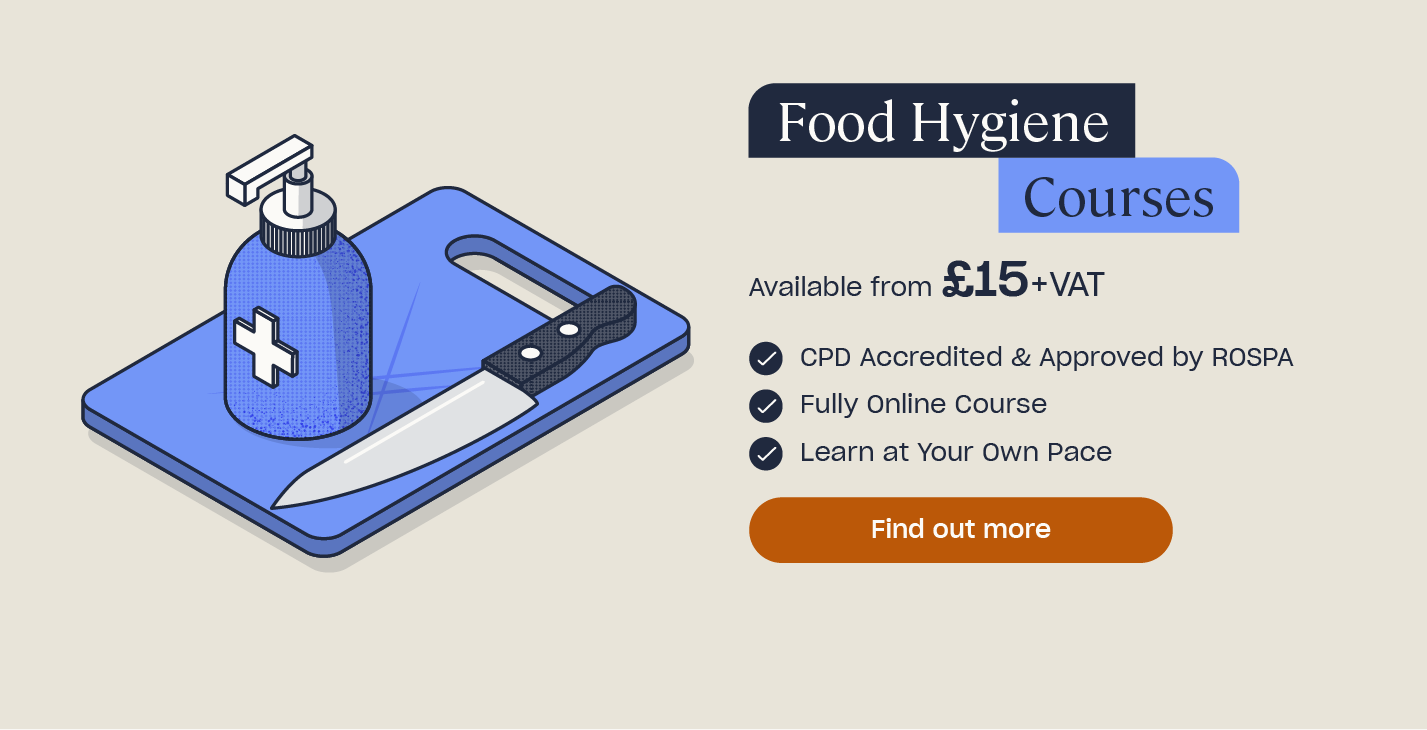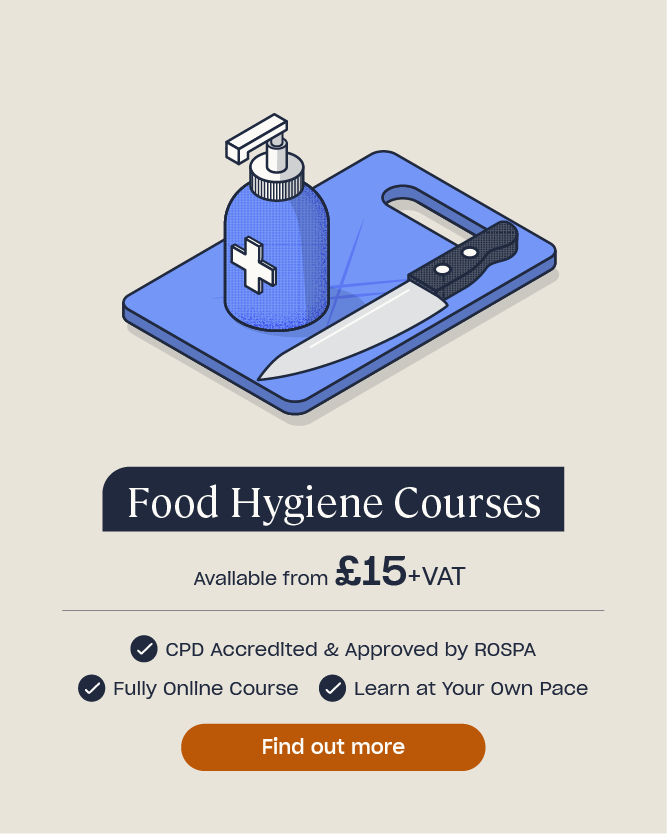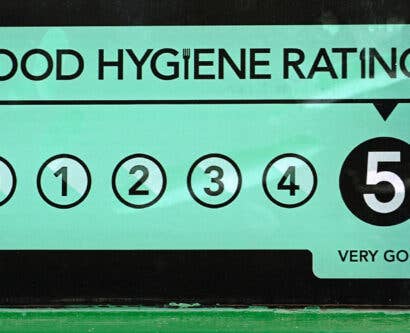How to Run a Restaurant Successfully
Running a restaurant successfully usually means different things to different people. But whatever your aim, running a business takes work to ensure that it is successful and operates smoothly and efficiently. And whilst there are various ways to achieve this goal, following our guidance and adding your own unique ‘ingredients’, such as your menu or the restaurant’s location, you can create a successful restaurant.
If you work in hospitality, it is essential that you understand how to run a restaurant successfully so that you can contribute to the overall success of the business. Whether you are a business owner or manager, an aspiring chef or part of the front-of-house team, we will show you methods to improve your work. This article will include what is involved in running a restaurant, why it is important to run a restaurant successfully and helpful tips for doing so.
What is Involved in Running a Restaurant?
Running a restaurant is a complex business operation and there are lots of aspects to consider when running a business like this. There are many positives to running a restaurant, cafe, takeaway or other food business, such as having the freedom to make your own decisions. This could include the creative freedom to decide the menu and the look and theme of the restaurant. Running a restaurant will also give you opportunities to learn how to be a good leader and build your skills and qualities.

What can be challenging, is that owners and managers often need to juggle multiple roles whilst coping with a lack of resources. You will need to have the right attitude, know how best to promote your restaurant, understand what your customers want, keep an eye on your competition and manage the daily operation of the restaurant.
It can be difficult to implement the actions you want to see as you find yourself accountable for finances, HR, customer service and other such roles that in most businesses would usually be a standalone department – all in addition to your primary job of general manager.
Running a restaurant successfully will help you manage all these demands. For example, if your staff are happy with their hours and pay, then fielding complaints, swapping shifts and adjusting payroll is something you won’t have to do. Therefore, working to meet your business aim of running a restaurant successfully will limit potential issues.

Running a restaurant involves the following key areas and it is important to consider where you can limit issues, for your business and your staff. Take the time to think about your business, and how you would want it to operate.
Choosing Suppliers
You will need suppliers for food and drink items and cleaning products, as well as IT consultancy companies for your POS system and more. Make sure you research your suppliers thoroughly and carry out your due diligence on their suitability.
Business Acumen
Having an understanding of numbers is important to keep track of your businesses success. Your financial plan will set out how much money the business needs to turn over in order to pay the bills, staff, and suppliers. Keeping an eye on the profit and loss reports, sales and expenditures will help you spot any areas for potential growth, as well as any areas that need careful management.
Team
Your restaurant is make-or-break on the team you employ. Look at how your team operate together. Do you have the best people working in the roles that suit them? Could you offer more responsibility to the staff that are keen to progress?
Working Hours
Look at how the rota is organised to ensure that you have staff when needed. Having more staff on during busy times will reduce employee stress but make sure there aren’t too many on during quieter times. Boredom can be stressful too, and expensive.
Holiday Requests
How do you accommodate holiday requests? Developing a policy here can help to avoid being short-staffed. Do you encourage staff to take their holidays? Being the boss who looks out for their wellbeing will foster loyalty and respect in the workplace which will help you in the long run.
Time Off
Good employees don’t like letting the team down but sometimes things come up that mean staff need time off at short notice. Forewarned is forearmed, so encourage your staff to talk to you about their lives; do they have a driving test, exams, or a special anniversary?
Sickness
We all get sick but when you work with food and the general public, fully recovering before returning to work is essential. Good hygiene is fundamental to staying healthy so do what you can to encourage a healthy workforce. Drill in the importance of hand hygiene for staff, especially when cold and flu season comes around. When staff are sick, encourage them to give as much notice as possible, and make sure they are well before they return to work – you don’t want staff passing on their germs to one another, and your customers.
Disciplinary Procedures
This is as essential as any other policy you implement. It is important your staff know and understand what constitutes a disciplinary procedure, what the process involves and what the consequences are. It will give you guidance should you have to deal with employee issues such as theft, assault or workplace bullying. Take the time to set out the disciplinary procedure now so that should you require it, you can call on it to protect yourself, your business and your staff.
Marketing Your Business
Social media is the most popular way to showcase your restaurant to connect with your many existing and future customers. You can use social accounts to run promotions and discounts. These are great ways to boost engagement. It is also a great way to launch new products, menu changes, and build customer relationships by responding to feedback. Read our article here to learn more about marketing your food business.
Once you are comfortable with what is involved in running a restaurant successfully, it is useful to look at why it is important you do so.
Why is it Important to Run a Restaurant Successfully?
As we’ve mentioned, success can look widely different to everyone, so think about what it means to you. Does success equal a good income, is it the chance to support and employ others, is it driving business growth and expansion, or is it the chance to follow your passion, enjoy work and talk with your happy customers every day? It might even be several of these. But whatever it means to you, there is no doubt that in the world of hospitality, happy customers and happy staff make the everyday running of a business much smoother.
Furthermore, happy and engaged staff will support the principles of your business, such as maintaining excellent food hygiene standards and being knowledgeable and careful with allergens. It will also limit your staff turnover, which can be a huge expense for a business. To learn more about the importance of retaining employees in hospitality, read our article here.
Looking to Learn More?
For more information on food hygiene and safety, take a look at our Food Hygiene Courses. We also offer courses such as Food Allergen Awareness Training and Mental Health & Wellbeing in Hospitality.

Tips on Running a Restaurant Successfully
The hospitality industry is an exciting place to work, it evolves and changes every day, and in order to be successful in your business you must stay on top of trends and consumer demands. However, when you look at successful restaurants you will see they all have key elements in common. It is these key elements that you can take and apply accordingly and they will underpin the success of your business too.
Key Elements of a Successful Restaurant
There are many elements to a business that can make the restaurant unique but ultimately success depends on whether your customers like what you’re offering, and whether they are willing to part with their money for it.
Some common key elements of a successful restaurant therefore include:
- Food – The most important aspect of a food business is of course the food! Your customers will return if they are happy to pay for what they receive. Not everything has to be fine dining and gourmet, but it does have to be consistently good, and customers now more than ever will search for value.
- Service – Alongside food, service is one of the most important elements of a successful restaurant. When a customer comes to your restaurant, your staff are who they see. A welcoming smile can make a diner’s experience. Furthermore, to have a relaxed and enjoyable experience, the customer needs to trust the business. This means that servers must be well-trained and knowledgeable in the service they are delivering. They must be able to confidently answer questions on the menu including allergen information, and be able to resolve issues promptly and effectively. Think about going the extra mile for guests too, you could offer a loyalty scheme or birthday freebies, all this will encourage customers to return to you. To learn more about how to train your staff, take a look at our Customer Service Training course.
- Location – Location is undoubtedly important, it is harder to run a successful business without access to customers, or if you have too-strong competition on your doorstep. However, the location must be right for your business too, for example, you might expect a fish restaurant to do well if situated near the coast. When deciding your location it is worth looking at the local demographic, business regulations, affordability and how accessible and approachable your space is for diners and suppliers.
- Strong restaurant identity – One of the most confusing things for diners is returning to a place and not getting the same experience. Having a strong restaurant identity helps keep your offering consistent and focused. A good place to start is in identifying your target customer. With them in mind, you can ensure your restaurant successfully meets their needs.
- A strong restaurant concept – Your unique selling point (USP), what makes your restaurant different? Be it a KittyCafe, vegan street food, or a pudding parlour, whatever it is you offer, embrace it across all aspects of your business and on your socials.
- Hiring – As a manager or business owner, you may be used to wearing many hats, but it is important to understand when it is best to hire others to help you get the most out of your business. Good staff will elevate the business, taking responsibility for shared success.
- Retaining staff – Not only is hiring the right people essential but keeping them is equally important. The act of searching for, hiring and training new workers is incredibly time-consuming and expensive. But the good news is that workers who feel valued and supported in their jobs, stay in their jobs.

- Supportive environment – As above, creating a supportive work environment can help staff feel happier in their jobs. Be the boss you wish you had. There are steps you can easily take to show your support and appreciation for your staff, from ensuring they take holiday time, supporting their mental wellbeing, providing training, and having open conversations about pay reviews.
- Hygiene and cleanliness – Customers notice things in a restaurant that you may yourself miss. It is essential that all areas of your business are clean at all times. Use cleaning checklists to ensure staff are doing their part and carry out regular spot checks on your menus, salt and pepper pots and decor. As well as clean, food preparation areas must be hygienic. It is also important that staff members, such as chefs, are in the correct uniform at all times. Your staff should be well trained on this as customers will not return to an establishment marred by unhygienic practices. See our personal hygiene tips for service staff here.
- Creating a profitable menu – Profit is of course key to running a successful restaurant. Some costs are fairly fixed, such as business rates and labour costs, but the menu offers an opportunity to change items for optimum pricing. Changing dishes for the season, or creating specials, can give a degree of flexibility by adding to gross profit or by recommending the upselling of side dishes. The same approach can be used on wet-led products too.
- Write a tasty-sounding menu – Research shows that menu descriptions sell food. Many people will choose items which demonstrate the cooking method used, such as ‘pan-seared’ or ‘slow-cooked’, simply because they sound like they taste delicious! Also, people like to know where the food comes from, is it an Aberdeen Angus Steak, or Cromer Crab caught fresh off the Norfolk coast? Be specific too, is your pasta dish served with linguini, or fettuccine? Details enhance the customer’s perception of the dish so highlight the selling points on your menu.
- Consider possible limitations – Alongside all the positive actions you can take in your business, it is important to know about any limitations you may face, what you can’t do is just as enlightening as what you can do. For example, do the rules of calorie labelling apply to you? Do you know how to properly label products adhering to allergy laws?
The hospitality industry is a resilient one, but it has also been going through some big changes in recent years. Modern values such as the rise in flexible working, an upcoming generation of workers and the desire for a better work-life balance are, rightly, disrupting the legacy of hospitality as a difficult work environment. There is a huge opportunity for businesses to be successful for their employees, in promoting staff wellbeing, and career progression and using policies to safeguard against future problems.
We hope the information contained in this article, along with our tips, has helped you to identify what success is for you and highlighted the importance of food safety, customer satisfaction and supporting great staff – all of which will help create your restaurant identity and encourage the customer to return time and time again.
What to Read Next:
- Daily Opening and Closing Checklist for Restaurants
- Online Food Hygiene Training
- Food Allergy Chart Template
- Disabled Access Requirements for Restaurants
- Employee Turnover in Hospitality: Causes and Retention Strategies
- Restaurant Hospitality Quiz
- How to Foster Motivation in Your Restaurant Employees
- The Kitchen Hierarchy Explained: What is the Brigade de Cuisine?
- Customer Complaints in Hospitality – From Our Very Own Experts
- What is the Importance of Effective Communication in the Hospitality Industry?
- The Importance of Food Hygiene Training
- How to Set a Table: Basic, Casual and Formal Dining
- How to Improve Sustainability in Restaurants
- Online Allergen Awareness Training











